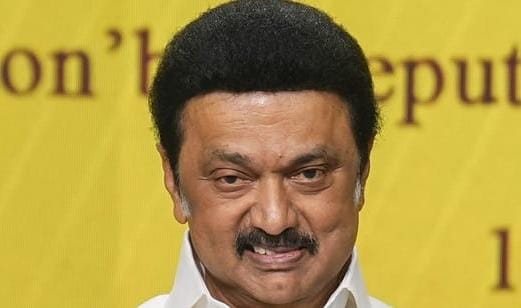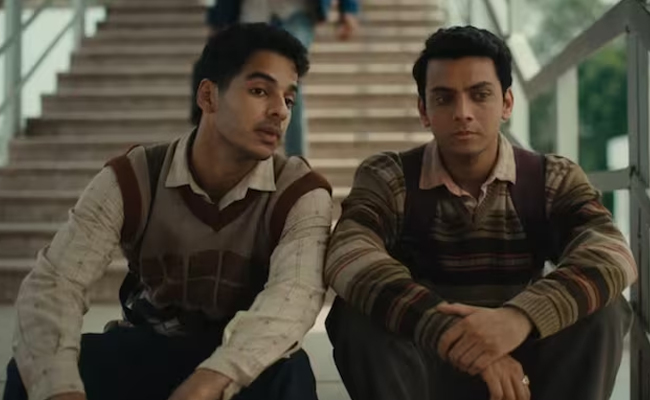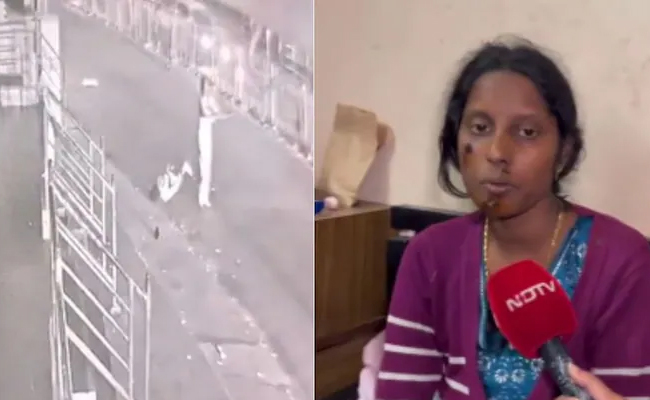New Delhi: In a significant judgment, the Supreme Court on Tuesday ruled that Tamil Nadu Governor RN Ravi’s decision to withhold assent to 10 Bills passed by the State Assembly was “illegal” and “arbitrary”. The court also held that his move to subsequently reserve the Bills for Presidential consideration was not in line with constitutional principles and set aside the Governor’s actions.
The ruling, delivered by a bench comprising Justice JB Pardiwala and Justice R Mahadevan, marks a major victory for the DMK-led Tamil Nadu government. The court said the Governor had failed to act in "good faith" and had disregarded constitutional obligations.
“The action of the Governor to reserve the 10 Bills for the President is illegal and arbitrary. Thus, the action is set aside. All actions taken by the Governor thereto for the 10 Bills are set aside. These Bills shall be deemed to be cleared from the date it was re-presented to the Governor,” the bench stated in its order.
The court underlined that Article 200 of the Constitution does not grant unchecked discretion to the Governor. It laid down clear timelines for the exercise of powers under this provision, thereby reinforcing the principle of accountability in constitutional governance.
Timelines and Judicial Review
The judgment prescribed the following timeframes:
- A Governor must act within one month when withholding assent or reserving a Bill for the President’s consideration, with the aid and advice of the Council of Ministers.
- When reserving a Bill without the Council's advice, the Governor has a maximum of three months.
- If a Bill is re-passed by the state legislature after reconsideration, the Governor must grant assent within one month.
The court clarified that any delay or deviation from these guidelines could invite judicial review, thereby making the Governor’s actions subject to legal scrutiny.
“This court is in no way undermining the powers of the Governor. All actions of the Governor must align with the principle of parliamentary democracy,” the bench noted.
Tense relations between Raj Bhavan and State Government
Governor RN Ravi, a former IPS officer and ex-CBI official, assumed office in Tamil Nadu in 2021. His tenure has been marred by frequent clashes with the MK Stalin-led government. The ruling DMK has repeatedly accused him of behaving like a BJP spokesperson and obstructing the state government’s legislative and administrative functioning.
These confrontations have been evident in the Assembly as well. In 2023, the Governor refused to deliver the customary address, criticising the draft as containing “misleading claims far from truth”. In 2022, he omitted portions of the speech that mentioned leaders like Dr BR Ambedkar, Periyar, and CN Annadurai, as well as references to the “Dravidian Model” and the law and order situation in the state.
Last year, the Governor also walked out of the Assembly during his address after objecting to the absence of the National Anthem at the beginning of the session. As per tradition, the Tamil Nadu Assembly plays the Tamil Thai Valthu at the start and the National Anthem at the end. Governor Ravi, however, insisted that the National Anthem be played at both times.
The state government has maintained that the Governor’s repeated withholding of assent and refusal to act on Bills passed by the legislature amounts to an attack on democratic values and federalism.
Tuesday’s Supreme Court verdict is expected to have far-reaching implications on Centre-state relations and the constitutional role of Governors across the country.
Let the Truth be known. If you read VB and like VB, please be a VB Supporter and Help us deliver the Truth to one and all.
Mumbai (PTI): Neeraj Ghaywan's much acclaimed "Homebound" is among the 15 films shortlisted in the best international feature category at the Oscars, moving a step close to the final five nominations and maybe a win.
The movie, inspired by a true story that became the basis of a news article during the pandemic, has been creating a global buzz since its debut in the Un Certain Regard category at the Cannes Film Festival this May.
Hollywood legend Martin Scorsese is a fan and has come onboard as an executive producer ahead of the award season.
Produced by Karan Johar and Adar Poonawalla, and starring Ishaan Khatter, Vishal Jethwa and Janhvi Kapoor, "Homebound" is Ghaywan's second movie after "Masaan".
"Homebound" will compete for an Oscar nomination alongside Argentina's “Belén”, Brazil's “The Secret Agent”, French drama "It Was Just an Accident”, Germany's "Sound of Falling” and Iraq's "The President's Cake".
ALSO READ: Actress Shilpa Shetty's restaurant booked for breaching operating hours
The other movies in the shortlist include Japan's “Kokuho”, Jordan's “All That’s Left of You”, Norway's “Sentimental Value”, Palestine's “Palestine 36”, South Korean hit “No Other Choice”, Spain's “Sirat”, "Late Shift" from Switzerland, “Left-Handed Girl”from Taiwan and Tunisian drama “The Voice of Hind Rajab”, the Academy of Motion Picture Arts and Sciences announced in a release on Tuesday.
The award for best foreign film, now re-categorised as best international feature, has so far eluded India.
Only three Indian films have received nominations in the category -- Mehmood Khan’s “Mother India”, Mira Nair’s “Salaam Bombay” and Ashutosh Gowarikar’s “Lagaan”. Deepa Mehta’s “Water”, starring John Abraham and Lisa Ray, also received a nomination but it was submitted from Canada.
Gujarati film "Chhello Show" in 2023 was the last film to get shortlisted.
Costume designer Bhanu Athaiya was the first Indian to get an Oscar, bagging the coveted prize in 1983 for the film "Gandhi". Other than her, A R Rahman, Resul Pukootty and M M Keeravani have also won individual Oscars.
Team "Homebound" celebrated the shortlist news with posts on social media.
"We made the shortlist... Way to go team Homebound'!" Johar shared in Instagram Stories.
In a post, the producer said it was difficult for him to articulate how "proud and elated" he was with the news.
"All of us @dharmamovies are privileged to have this proud and important film in our filmography... thank you @neeraj.ghaywan for making so many dreams of ours come true... from Cannes to being on the Oscar shortlist this has been such an overwhelming journey! Love to the entire cast and crew and teams of this special special film! Upwards and onwards...."
Ghaywan also shared the news on X.
"#Homebound has been shortlisted for Best International Feature Film at the 98th Academy Awards! We are deeply grateful for the extraordinary love and support we've received from around the world," he wrote on X with a special poster of the film.
Jethwa, who plays one of the two friends in the story opposite Ishaan Khatter, said the moment feels "surreal and incredibly humbling".
"To see 'Homebound' being shortlisted and progressing towards the Oscars is something I could have only dreamed of. I am deeply grateful for the love and support the film has received from audiences around the world," he said as he acknowledged Johar, Ghaywan and co-star Khatter and the rest of the team.
Khatter also shared the news on his Instagram stories and wrote, "Oscar ab dur nahi".
ALSO READ: MGNREGA rename: Gandhi made ‘Raghupati Raghav Raja Ram’ national anthem, Kangana sparks row
"Homebound" is inspired by journalist Basharat Peer's The New York Times article “Taking Amrit Home”, also titled "A Friendship, a Pandemic and a Death Beside the Highway".
The film portrays the childhood friendship between a Muslim and Dalit who chase a police job that promises them the dignity they have long been denied due to their surnames.
The Academy on Tuesday also announced shortlists in 11 other categories, including the newly added casting Oscars, animated shorts, cinematography, documentary feature, documentary short, original score and song, sound and visual effects categories.
Nominations for the 98th Academy Awards will be announced on Thursday, January 22, 2026.
Twenty-four categories will be awarded at the 98th Oscars. Each category has five nominees, except for best picture, which has 10.
The 98th Oscars will be held on Sunday, March 15, 2026, at the Dolby Theatre in Los Angeles.





